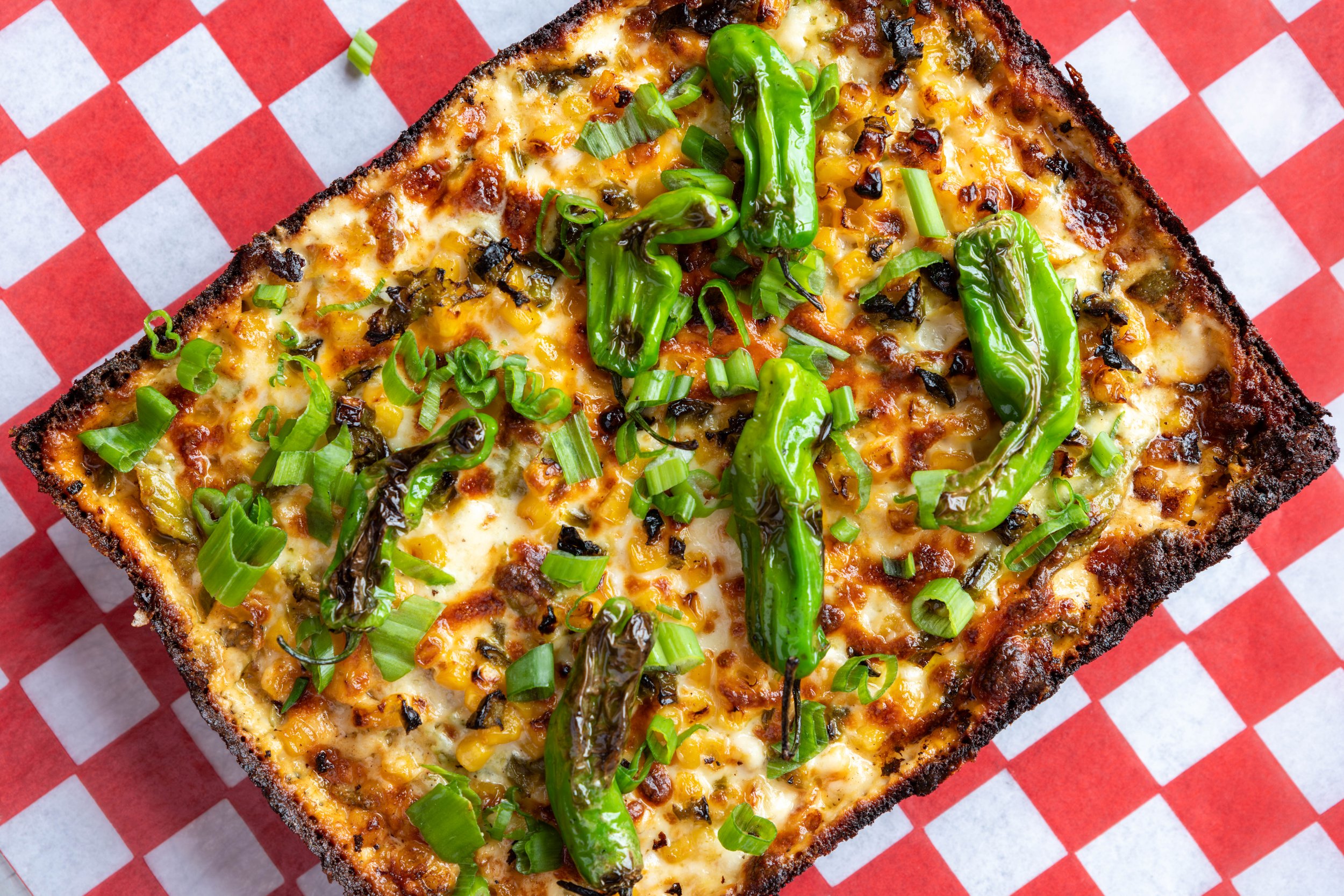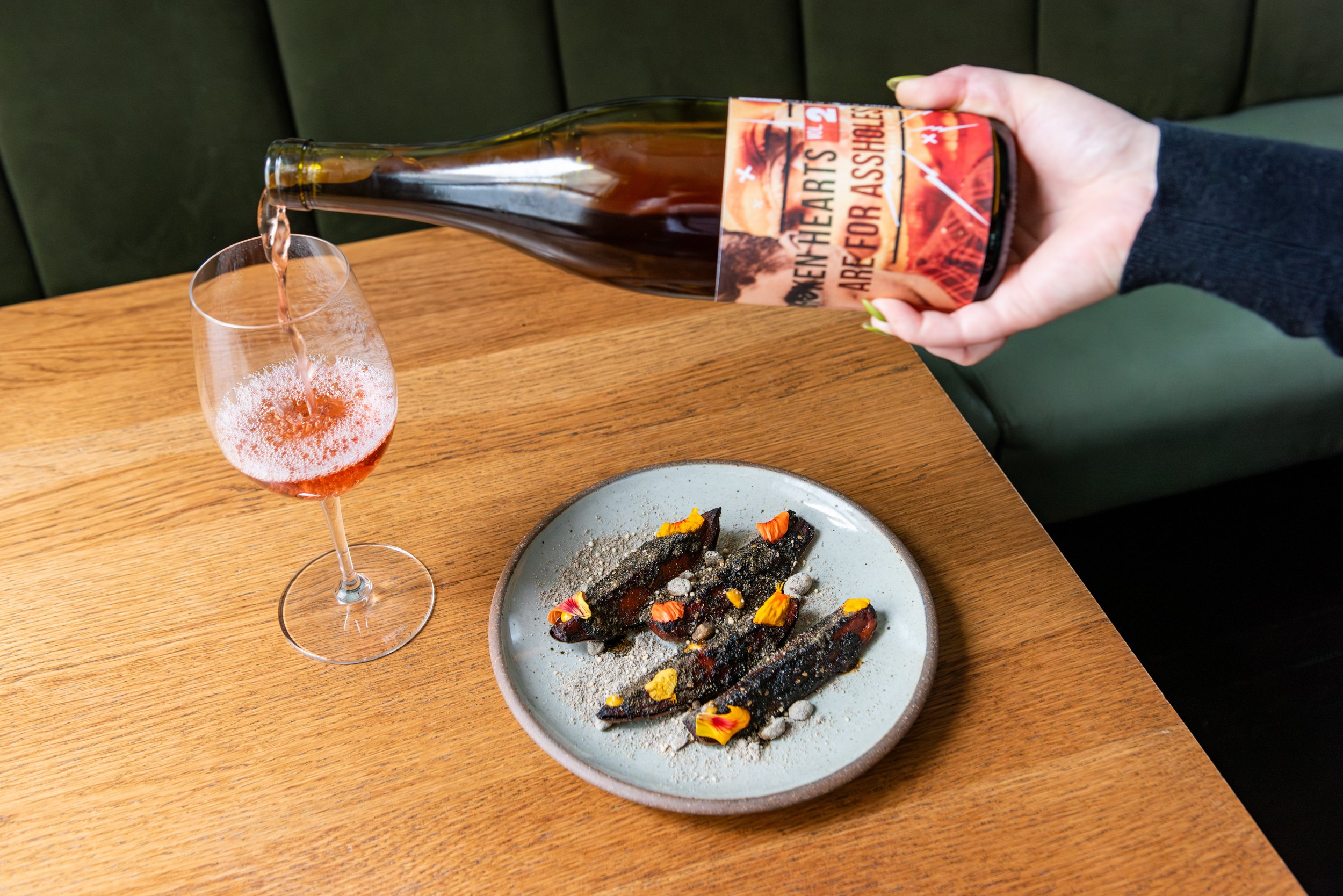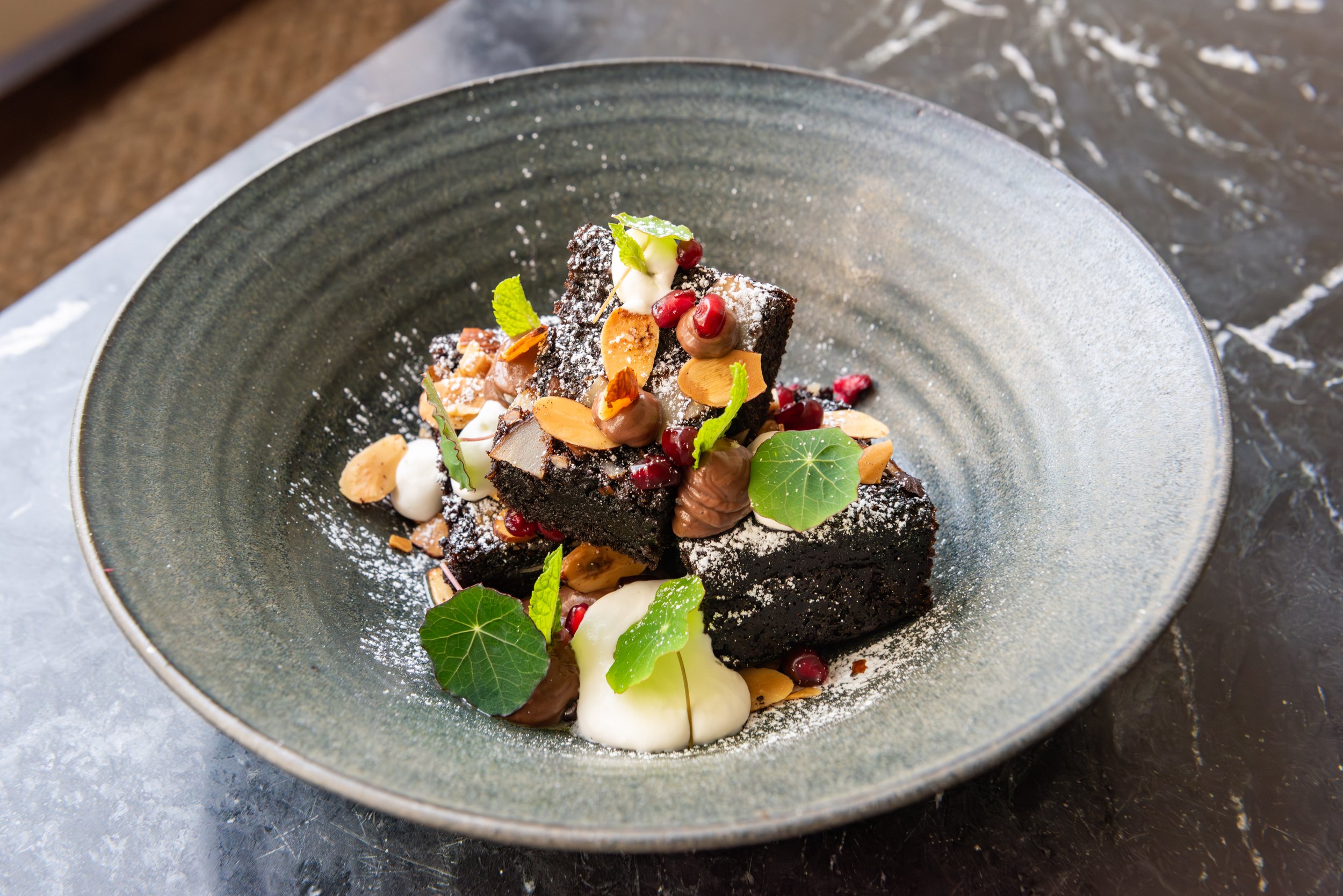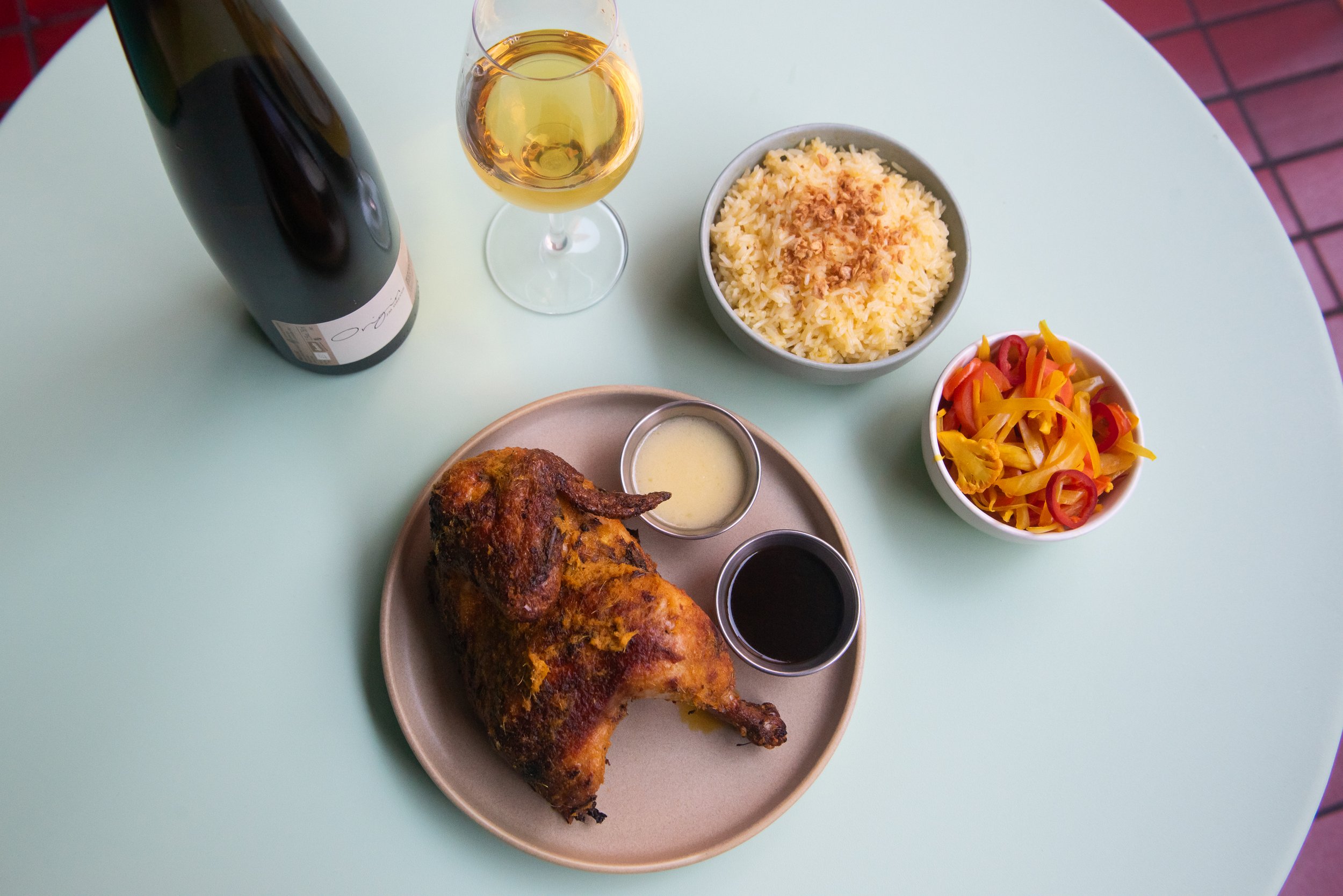The Power of Pizza
In a city that knows its pies, two chefs are taking advantage of its fan base to raise money for good.
photos: alexander zeren
No matter your pizza preference (deep dish or tavern-style), or where your allegiances lie (Giordano's or Lou Malnati’s), everyone can agree that Chicago is a pizza town. There are some chefs, however, that are building upon the city’s historic pizza legacy and creating one of their own, using their pizza prowess to support the Chicago community at large.
“I’ve been cooking for a long time, but it wasn’t until lockdown that I went down the pizza rabbit hole,” says John Carruthers, chef-owner of Crust Fund Pizza. In 2020, to pass the time, Carruthers declared Friday a day for pizza. It was a time when he and his kids would make pies and watch a movie together. He continued developing his recipes on the side and started sharing his pizzas with friends and family, but that August when Black Lives Matter protests erupted in Chicago, he felt compelled to help. “I wanted to do something, but was pretty housebound with the kids. [I thought], maybe if people wanted, they could come pick up my pizza.”
So, Carruthers rolled up his sleeves, got the word out to as many people as he could, and sold pizzas out of his garage to support Chicago’s Black community. His pizzas sold out, and he raised over $500 for the local Black journalism organization, The TRiiBE. Word spread quickly of what was now dubbed Crust Fund Pizza, and with encouragement from Chef Derrick Tung of Chicago’s Paulie Gee’s and write-ups in local publications, people were clamoring for more.
Carruthers has since upped his production. Crust Fund operates monthly out of Carruthers’ home, selling 15 to 18 pizzas for pickup each month from his garage (“the minimum is nine pizzas depending on if I have to shovel snow”). The monthly pizza is shared on his Instagram, and orders are taken through an online form. “I don't take any money, I just make people show me their donation receipts. 100% of every purchase goes to support the cause.” The last pizza of the month is put up for auction, going to the highest bidder. Crust Fund also pop-ups at local restaurants, churning out Carruthers’ tavern-style pies, and the occasional nostalgic pan pizza—those “subsidy school pizzas,” as he calls them—at a higher volume (recipe on pg. 93). No matter the venue, he always sells out, and the running list of charities and donations is live on Crust Fund Pizza’s website.
“We work with charities focused on direct social action in Chicago: food insecurity, domestic violence, refugee support, non-profit journalism, and more.” In addition to research and direct outreach from organizations, Carruthers leverages his connections from his full-time job as the Director of Communications at Revolution Brewing to partner with nonprofits.
Beyond pizza, Carruthers published his charity book Pizza for Everyone in 2021 which featured recipes, illustrations, articles, and pizza philosophies from fellow Chicago pizza aficionados. The book sold over 1,200 copies and raised $18,000 for charity. Another cookbook, Super Pizza World is now in the works, this time showcasing pizza recipes from around the world.
To date, Crust Fund has raised over $80,000 for various Chicago-based charities. “It's amazing. People have paid $500 [for a pizza]. I think I make good pizza, but that's pretty wild. It’s cool seeing people find something to care about. The best part is, I still make pizzas with my kids every Friday.”
For Billy Zureikat, pizza provided not only an opportunity to build community, but also a way to share his story. In 2013, Zureikat found that he was having balance issues while playing basketball. Balance issues eventually turned into regular falls, and soon everyday tasks became difficult to complete. In 2021, he was diagnosed with limb-girdle muscular dystrophy, a rare form of the disease. The diagnosis was difficult to process, and unable to continue his usual hobbies, he “traded [his] jersey for an apron.”
“[Cooking] provided calm, and pizza making and bread making became my passion.” Aimless trips to the farmers market for ingredients resulted in what would become Zureikat’s signature pizza, a Detroit-style pie with shishito pepper cream sauce, corn, cheddar, and pickled jalapeños.
Later that year, Tung, who had become a friend and pizza mentor to Zureikat over the past few years, gave him a call. “They were hosting a charity event for No Kid Hungry while celebrating home pizza makers. He wanted me to make my pizza.” The “Sheesh, That’s Corny” was a hit, and Tung decided to sell it as a temporary special at Paulie Gee’s. Inspired by a recent fall, Zureikat decided to rename the pizza The Tripping Billy. “I thought, I’m so sick of hiding [my diagnosis]. I called Derrick right away, told him I want to rename the pizza, and that I wanted to donate a few dollars to the Muscular Dystrophy Association.” The pizza and its message resonated with customers, and Zureikat took advantage of the momentum and his media background to raise awareness of the disease.
Since then, Zureikat has collaborated with over 60 restaurants and businesses in the Chicago area and beyond. On his Tripping Billy Pizza Tour, the namesake dish is recreated at a pizzeria and interpreted in the restaurant’s style. And, whether selling The Tripping Billy, sandwiches, or even dishes inspired by the original pie, a portion of the sales from Zureikat’s solo pop-ups go to the Muscular Dystrophy Association. He has raised $55,000 and counting for the organization.
“I don’t want to open a restaurant. My strength is creating and telling stories. Food is my voice and my voice is power. I don't care that I'm just a home cook. I want to break the stereotypes of what a disability looks like.”
Chicago’s pizza legacy is stronger than ever. Carruthers and Zureikat have proven that a slice can bring communities together to enact powerful and lasting change.







